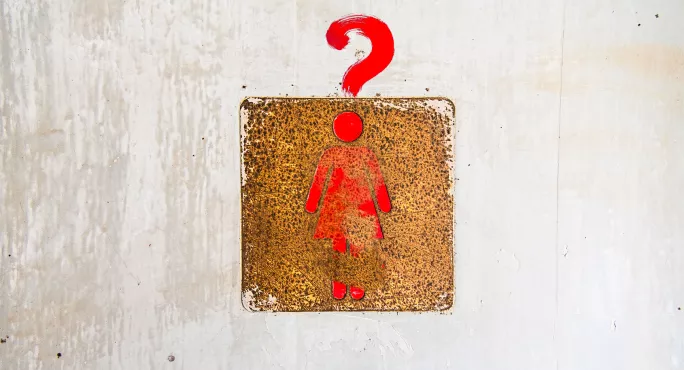
Teachers ŌĆśconcernedŌĆÖ about legal ruling on definition of a woman

Teachers are concerned about the implications for their pupils following the Supreme CourtŌĆÖs ruling on the legal definition of the term ŌĆ£womanŌĆØ, a union leader has said.
Education unions are calling on the government to provide clear guidance to schools on how to interpret the law with regard to children questioning their gender.
Tes understands that the Equality and Human Rights Commission is currently producing guidance, applicable to schools, on the judgement.
It was ruled on Wednesday that the terms ŌĆ£womanŌĆØ and ŌĆ£sexŌĆØ in the Equality Act 2010 ŌĆ£refer to a biological woman and biological sexŌĆØ.
This means that transgender women with a gender recognition certificate (GRC) can be excluded from single-sex spaces if ŌĆ£proportionateŌĆØ.
Guidance needed ŌĆśas quickly as possibleŌĆÖ
Patrick Roach, general secretary of the NASUWT teaching union, said: ŌĆ£Following the Supreme Court judgement, the NASUWT has been contacted by teachers concerned about the implications for them and for the pupils they teach.
ŌĆ£The implications of the legal judgement will need to be considered carefully, and it is vital that the government provides clarity and guidance to schools and colleges as quickly as possible.ŌĆØ
He added: ŌĆ£Trans rights are human rights and we urge the government to consider what further measures are needed to protect those rights in law and in practice.ŌĆØ
- Need to know: Key information on transgender guidance
- Transgender guidance: ŌĆśProtect schools from legal casesŌĆÖ
- Backlash: Coalition urges rethink on school transgender guidance
Draft guidance for schools and colleges on how best to support students questioning their gender was published by the previous government in December 2023.
It said that ŌĆ£parents should not be excludedŌĆØ from decisions taken by a school or college relating to requests for a child to ŌĆ£socially transitionŌĆØ, such as wishes to change name, pronoun and clothing.
The draft guidance said schools and colleges should make parents aware if their child requests a change - except in the ŌĆ£very rare situationŌĆØ where parental involvement may raise a ŌĆ£significant risk of harmŌĆØ to the child.
It added that schools ŌĆ£must always protect single-sex spacesŌĆØ with regard to toilets, showers and changing rooms.
Julie McCulloch, senior director of strategy and policy at the Association of School and College Leaders (ASCL), said: ŌĆ£School and college leaders require clear, practical guidance from the government on how to interpret the law in regard to children and young people questioning their gender.
ŌĆ£We are seeking clarification from the Department for Education over whether they intend to publish new guidance for schools and colleges, and whether this will be done at the same time as the Equality and Human Rights Commission guidance.ŌĆØ
Ruling ŌĆścould increase tensionsŌĆÖ in schools
Alistair Wood, CEO of education legal services company Edapt, outlined the ways in which schools could be impacted by the new judgement.
ŌĆ£Schools could now legally restrict access to toilets and changing rooms, admissions policies may lawfully use biological sex as the basis for entry, and staff roles involving intimate care or 51║┌┴Ž may now be lawfully designated by sex-at-birth,ŌĆØ he said.
However, he added that, without guidance, there is a ŌĆ£real risk that schools will spend an inordinate amount of time and resource navigating legal complexity that is a stretch for most equalities lawyers, let alone school leadersŌĆØ.
Mr WoodŌĆÖs concerns were echoed by Oscar Davies, a barrister at Garden Court Chambers, who warned that the ruling, which does not define gender or sex, could risk ŌĆ£increased tensions and even legal challenges to schools due to the conflict between gender presentation and biological sexŌĆØ.
ŌĆ£This ruling will make it harder for education providers to balance the rights of trans pupils while also adhering to the courtŌĆÖs judgement,ŌĆØ said Mx Davies.
But they added that trans people, including children, are still protected from discrimination under the Equality Act 2010.
However, Trish DŌĆÖSouza, educational lead at law firm Browne Jacobson, said she does not think that the Supreme Court judgement will have a notable impact on schools.
ŌĆ£I believe that most schools are taking a careful approach of matters of gender identity, and I would advise them to take each case by case,ŌĆØ she said.
Tes has approached the Office for Equality and Opportunity, which focuses on gender equality and LGBT rights for the UK, on whether it is producing specific guidance for schools following the court judgement.
A government spokesperson said of the judgement: ŌĆ£This ruling brings clarity and confidence for women and service providers such as hospitals, refuges and sports clubs.
ŌĆ£ItŌĆÖs vital that we ensure young people, no matter their background, can access the opportunities to thrive. ThatŌĆÖs why schools are required to comply with their 51║┌┴Ž duties and make arrangements which protect the privacy, dignity and safety of all pupils.ŌĆØ
For the latest education news and analysis delivered every weekday morning, sign up for the Tes Daily newsletter
You need a Tes subscription to read this article
Subscribe now to read this article and get other subscriber-only content:
- Unlimited access to all Tes magazine content
- Exclusive subscriber-only stories
- Award-winning email newsletters
- Unlimited access to all Tes magazine content
- Exclusive subscriber-only stories
- Award-winning email newsletters
You need a subscription to read this article
Subscribe now to read this article and get other subscriber-only content, including:
- Unlimited access to all Tes magazine content
- Exclusive subscriber-only stories
- Award-winning email newsletters
- Unlimited access to all Tes magazine content
- Exclusive subscriber-only stories
- Award-winning email newsletters
topics in this article



